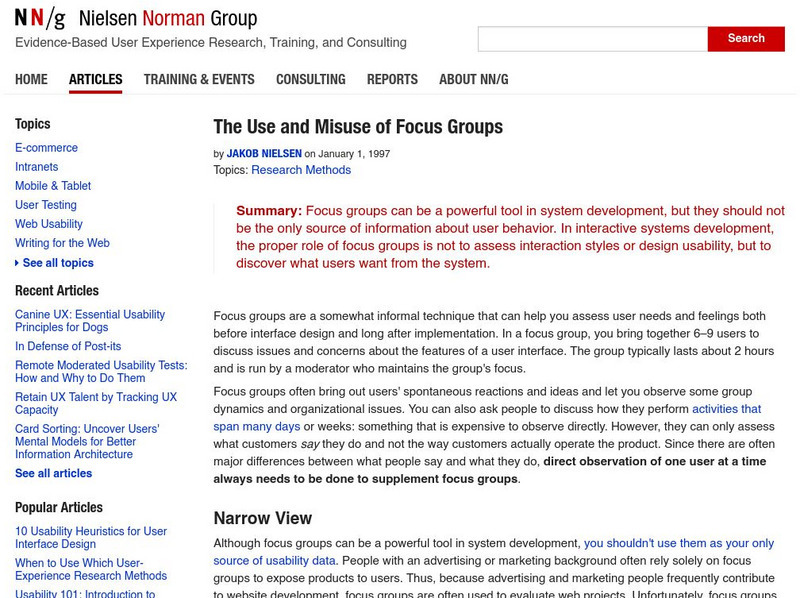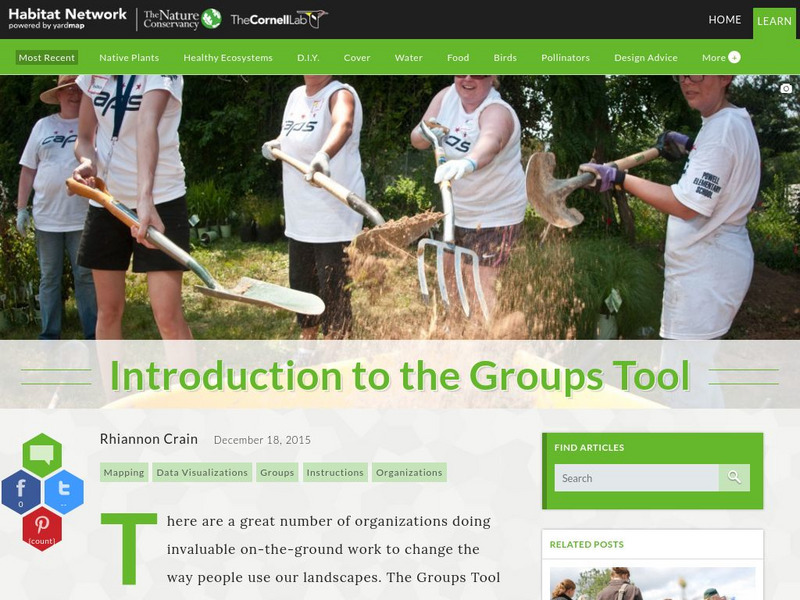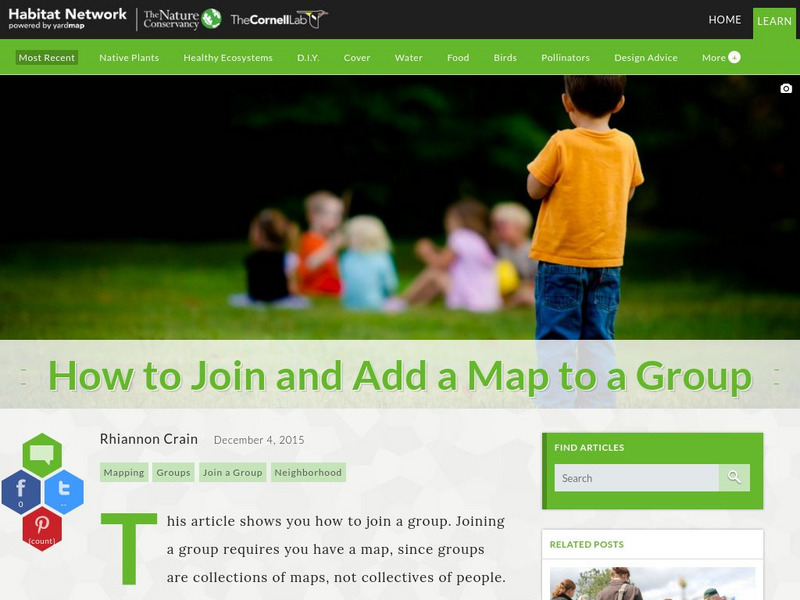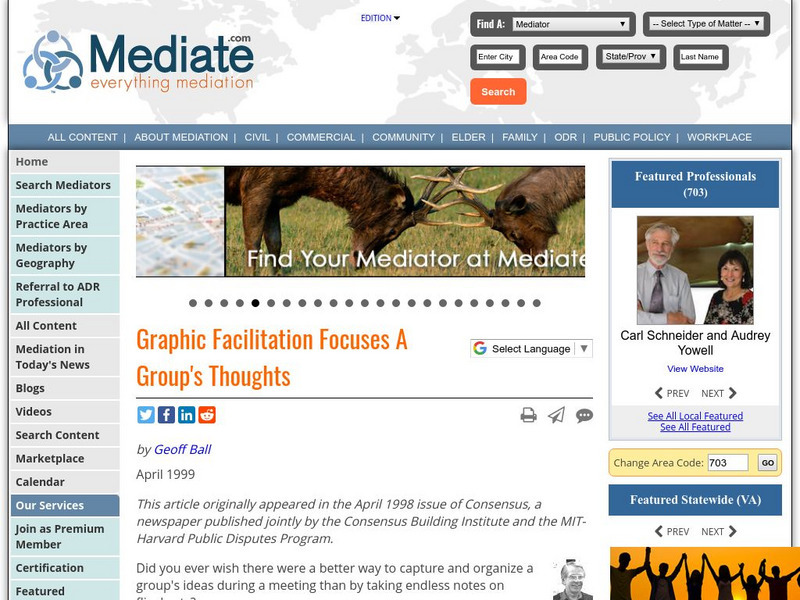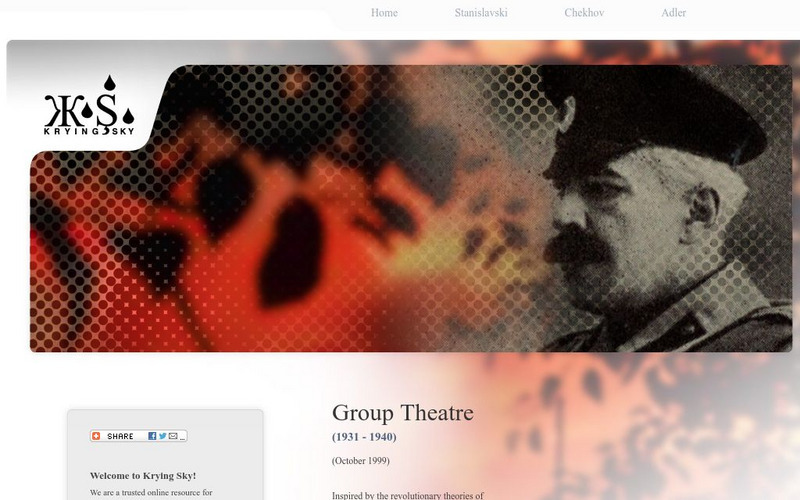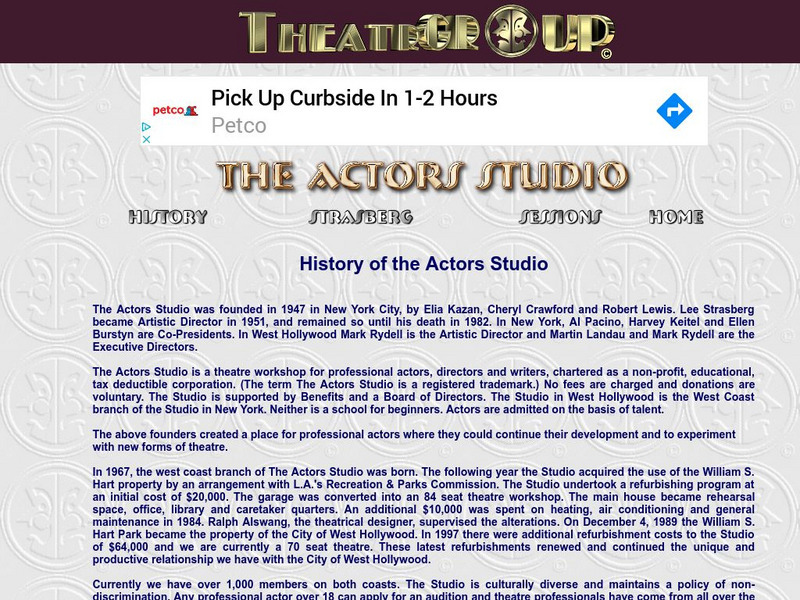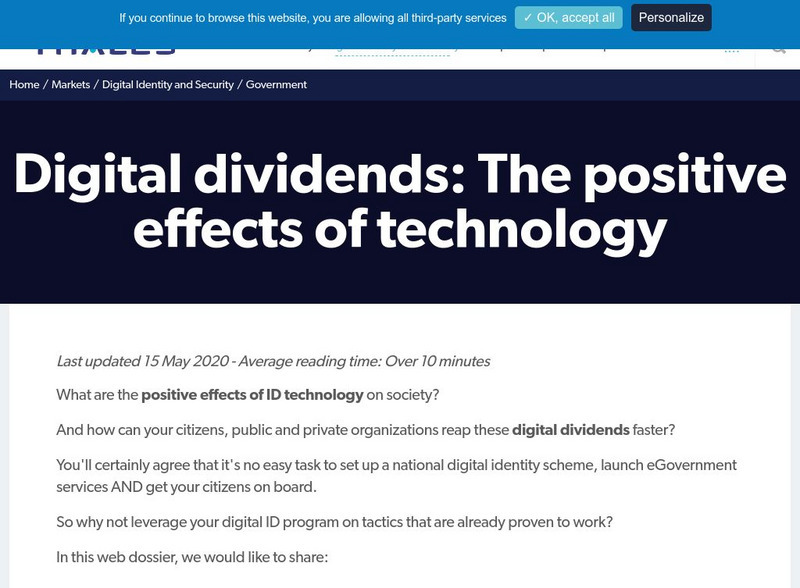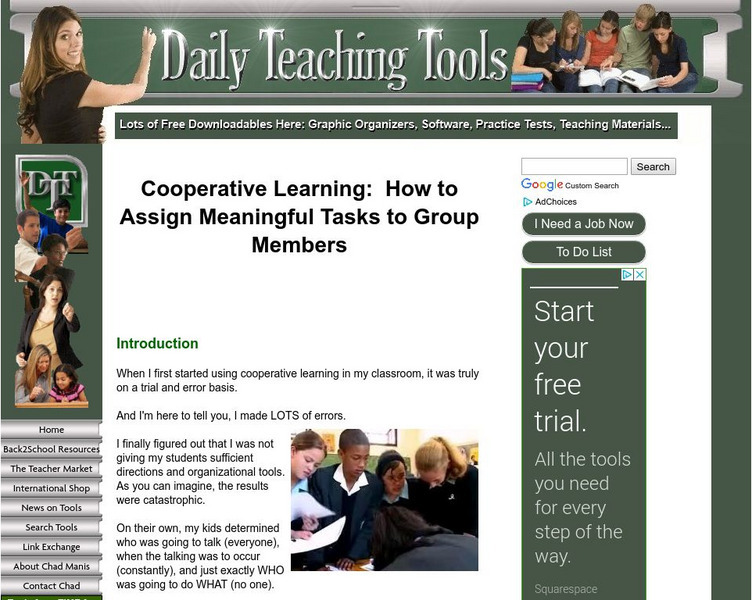The New York Times
Teaching Orwell and '1984’ with the New York Times
Doublethink and alternate facts? Big Brother and Facebook? 1984 and 2019? Sales of 1984 have surged and so has the use of George Orwell's dystopian classic in classrooms. Whether new to teaching the novel or a seasoned veteran you'll...
NASA
Speaking in Phases
Hear from deep space. Pupils learn how satellites transfer information back to Earth. They learn about three different ways to modulate radio waves and how a satellite sends information with only 0s and 1s. Using sound, class members...
College Board
Seeing Is Believing
Students read about AP calculus online. In this calculus lesson, students learn real life usage for calculus. They read about instructors and their experience teaching and incorporating calculus into the real world.
New York Times
New York Times: An in Depth History of Group F.64
This article is based on a book by Mary Street Alinder, who had worked with Anselm Adams. Group f.64 was a group of photographers in the 1930s who advocated for a pure style of photography.
Other
Inside Higher Ed: 8 Ways to Improve Group Work Online
This article discusses why online collaboration skills are critical to student success in today's world and offers strategies for educators to help students do well in group projects.
Other
Nielsen Norman Group: The Use and Misuse of Focus Groups
Discusses the pros and cons of using focus groups in advertising, marketing, and system development. (Published January 1, 1997)
AdLit
Ad lit.org: Grouping Students Who Struggle With Reading
There are a variety of grouping formats that have been proven effective for teaching reading to students with learning disabilities: whole class, small group, pairs, and one-on-one. This article summarizes the research and implications...
Cornell Lab of Ornithology
Habitat Network: Introduction to the Groups Tool
Habitat Network introduces the Groups Tool that helps connect citizen scientists across the country.
Cornell Lab of Ornithology
Habitat Network: How to Join and Add a Map to a Group
Find out how to join a group for the citizen science project, Yardmap by Habitat Network.
Other
Mediate: Graphic Facilitation Focuses a Group's Thoughts
This article discusses what graphic facilitation is and how it can focus a group's thoughts and understanding. An example is provided showing how it resolved a conflict between two groups.
Other
Network World: Group Behavior and Security
This article summarizes the role of group dynamics with employees. Discusses how group polarization can be a disadvantage.
Other
Brefi Group Limited: Self Directed Learning
Learn about self-directed learning and the 3 models provided: facilitated learning groups, community learning, and self-directed development programs. Each model is discussed in detail with links to a plethora of related resources.
Cornell Lab of Ornithology
Habitat Network: The Great Backyard Bird Count Group
Show off a local wonderful habitat by joining the Great-Backyard-Bird-Count group, and put the bird count data on your map.
Other
Groups Urge Bush to Keep Steel Tariffs
This is an article by the Pittsburgh Times about groups that are trying to persuade the Bush Administration from revoking the controversial steel tariffs. A great article that describes how the tariffs are a way to help the ailing...
Other
Krying Sky Productions: The Group Theatre (1931 1940)
Contains four paragraphs of information about the influential Group Theatre of New York in the 1930s. Also contains links to more information about people who influenced or were associated with it including Konstantin Stanislavski, Lee...
Other
I Buzzle: Group Discussion Activities
Group discussion activities help at several levels, may it be professional or personal. The following article will highlight the importance of these activities and provide you with examples. The activities described can help with warming...
Love To Know Media
Your Dictionary: Vocabulary Games to Play in Groups
This article focuses on board games played in groups that can improve vocabulary including Scrabble, Boggle, Scattergories, Taboo, and Random Words.
Other
Aventis Learning Group: Systems Thinking: The What, Why, When and How
Systems thinking is a holistic approach to analysis that focuses on the way that a system's constituent parts interrelate and how systems work over time and within the context of larger systems. It is particularly useful in addressing...
Other
Theatr Group: The Actors Studio History
History of The Actor's Studio including its origins in the teachings of Stanislavski and The Group Theater. Also includes the roles of Robert Lewis, Sanford Meisner, and Lee Strasberg.
Other
Thales Group: Digital Dividends: The Positive Effects of Id Technology
This article provides a pro-business perspective on the adoption of digital identification of citizens by governments around the world. It looks at how governments can better serve their citizens by using this technology, its economic...
Other
Nielsen Norman Group: Low Literacy Users: Writing for a Broad Consumer Audience
An article describing what lower-literacy is and the characteristics and differences between them and higher-literacy users. There is also a section on improving usability for lower-literacy users especially pertaining to the internet.
Cornell Lab of Ornithology
Habitat Network: Wildlife Habitat Category in the Groups Data Visualization
Habitat Network has combined all the vegetatively-complex habitat polygons into categories here.
Other
Common Dreams: Groups Mark 20th Anniversary of Love Canal Toxic Tragedy
20th Anniversary of Love Canal site (1998) lists superfund polluters. Site discusses top corporations who pollute and put communities at risk.
Daily Teaching Tools
Daily Teaching Tools: Individual Tasks
This Daily Teaching Tools resource provides effective time management strategies for cooperative groups. Students will work on time management and an aid to with group engagement. SL.11-12.1c Questions/Part
Other popular searches
- Food Groups
- Ethnic Groups
- Self Esteem Group Activities
- Mental Health Group Activity
- Group Work
- Cooperative Groups
- Equal Grouping
- Interest Groups
- Ethnic and Minority Groups
- Pe Games Large Groups
- Five Basic Food Groups
- Five Food Groups






